Abstract
The gastric acid, pepsin, and secretory volume output in response to a mixed meal were measured in six patients with Zollinger-Ellison syndrome caused by a gastrin-producing tumour proved subsequently at surgery. The patients were all normocalcaemic, and none had previous abdominal surgery. In four of the six patients, ingestion of the meal markedly inhibited the gastric secretory output, which decreased to below fasting levels, returning later to basal values. In two other patients, whose fasting acid output was considerably lower, the secretory output increased after the meal, but some inhibiton of gastric secretion was also apparent for variable intervals of time. The serum gastrin concentration in all patients remained essentially unchanged or increased after the meal. Two patients were restudied after successful removal of the duodenal gastrin-producing tumour, and in each the normal gastric secretory and gastrin-releasing responses were completely restored. Our studies suggest that, in patients with the Zollinger-Ellison syndrome caused by a gastrinoma, physiological regulatory mechanisms triggered by food reduce the continuous stimulation of gastric secretion caused by their tumoural hypergastrinaemia.
Full text
PDF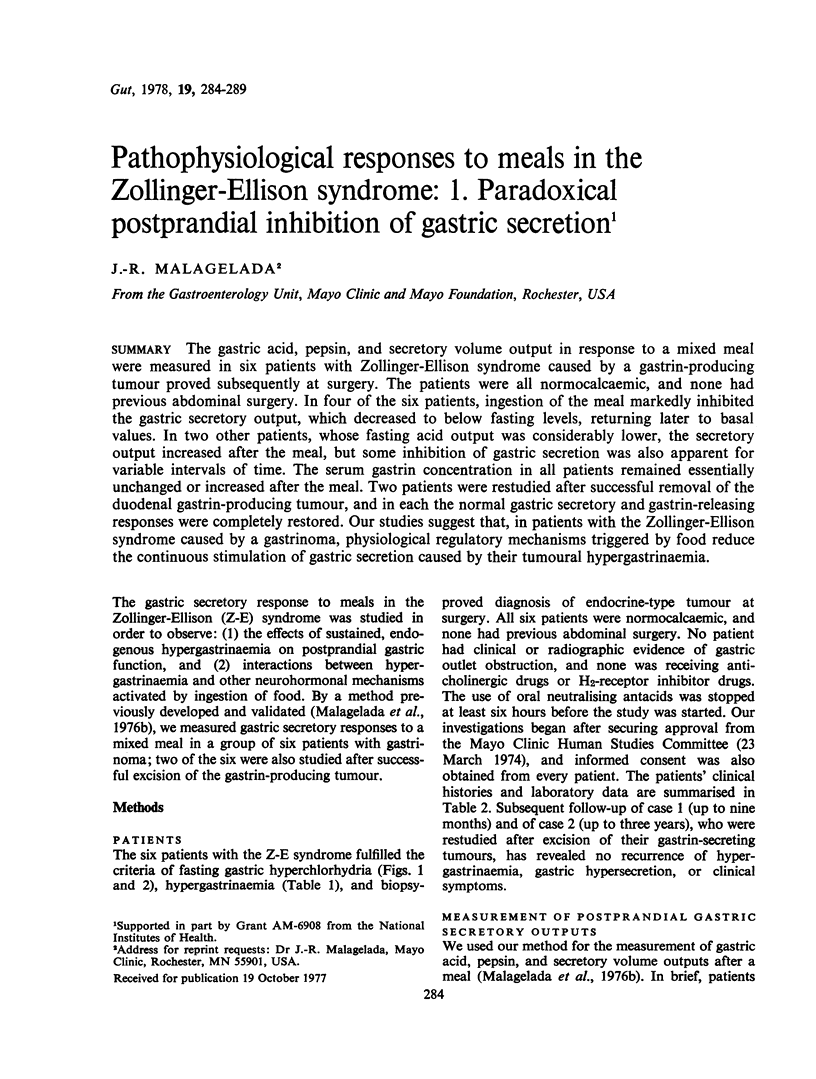
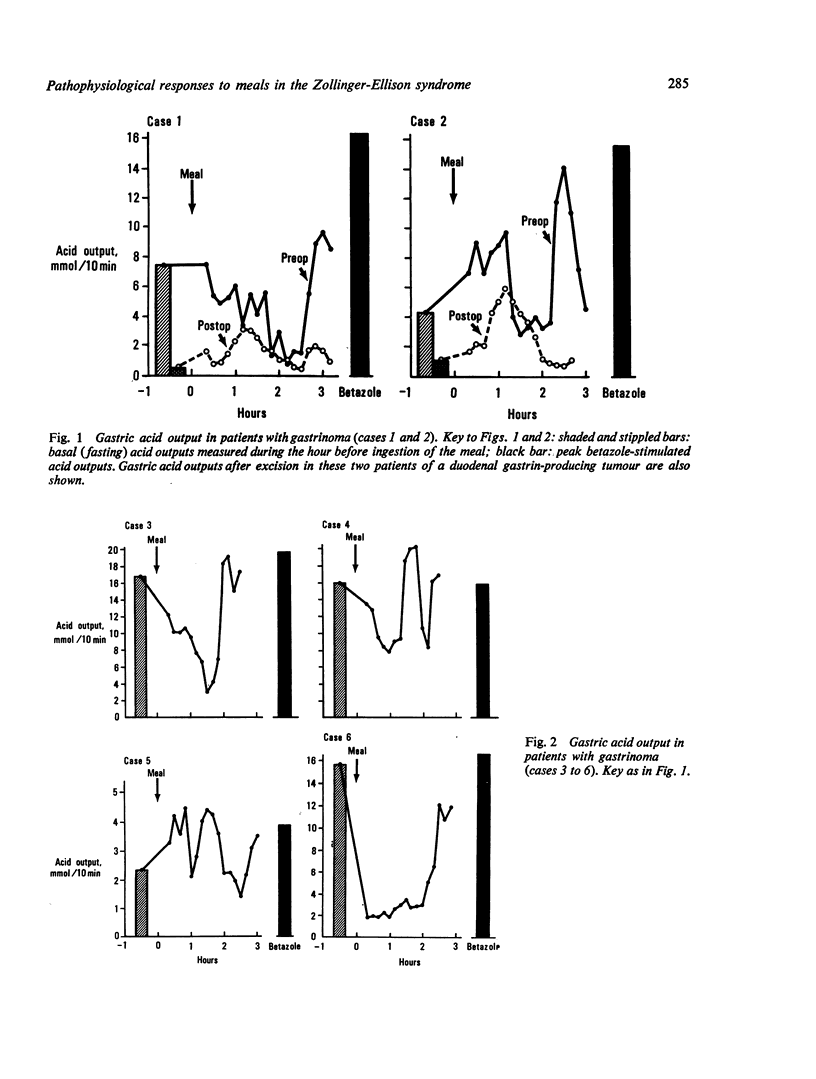
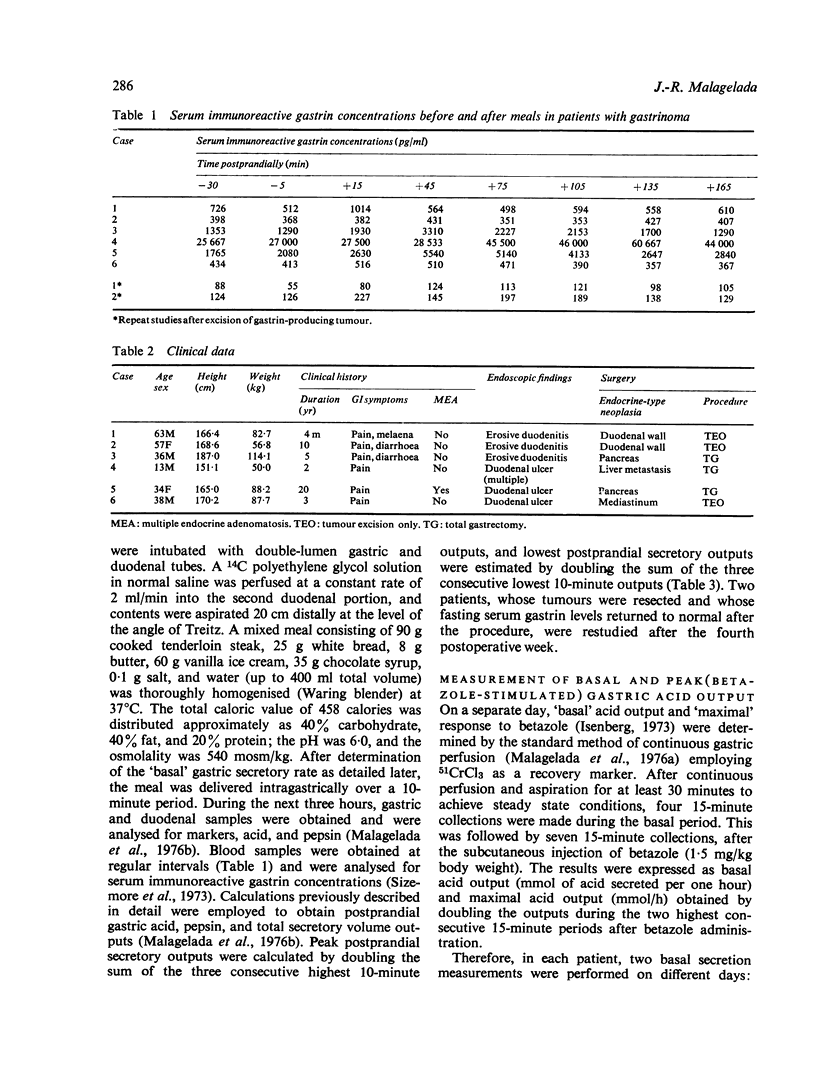
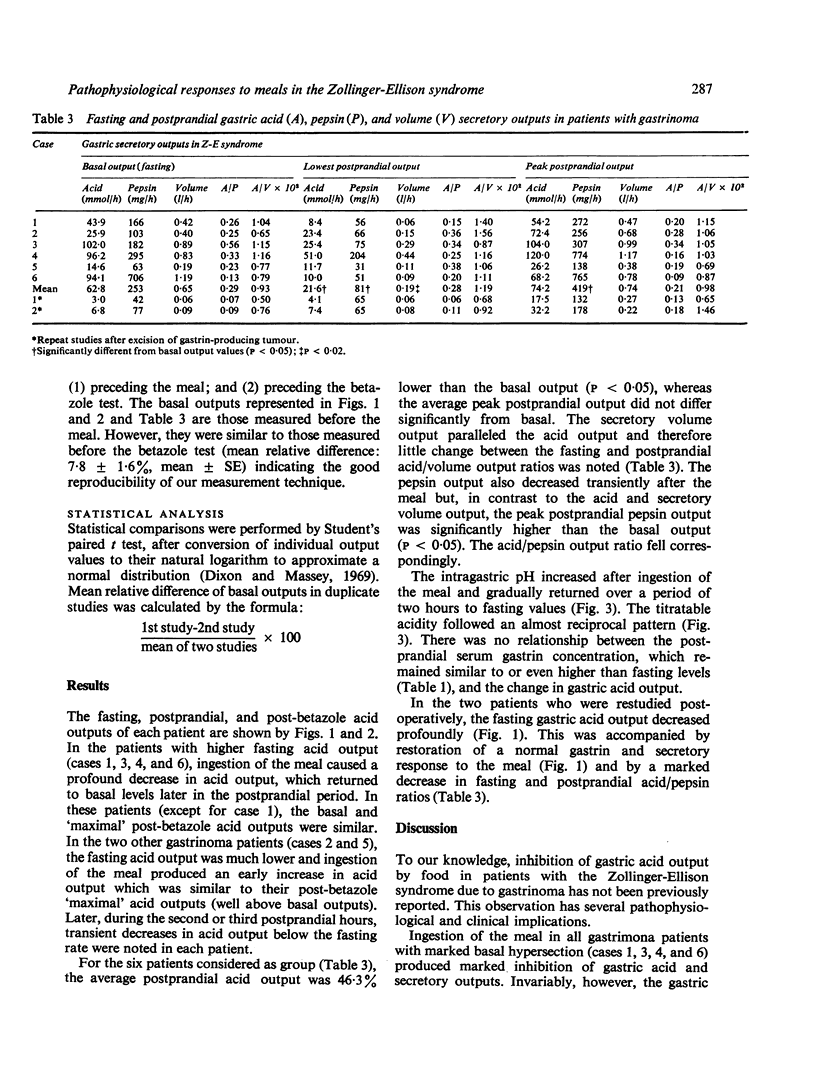
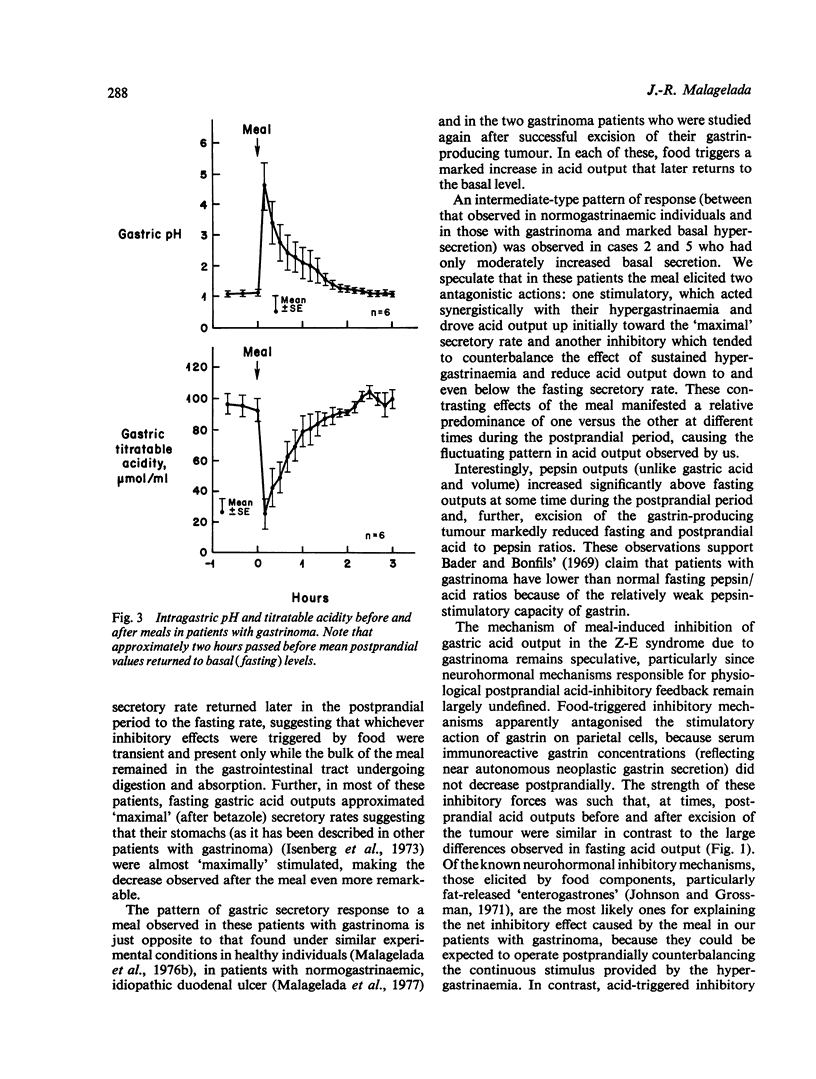
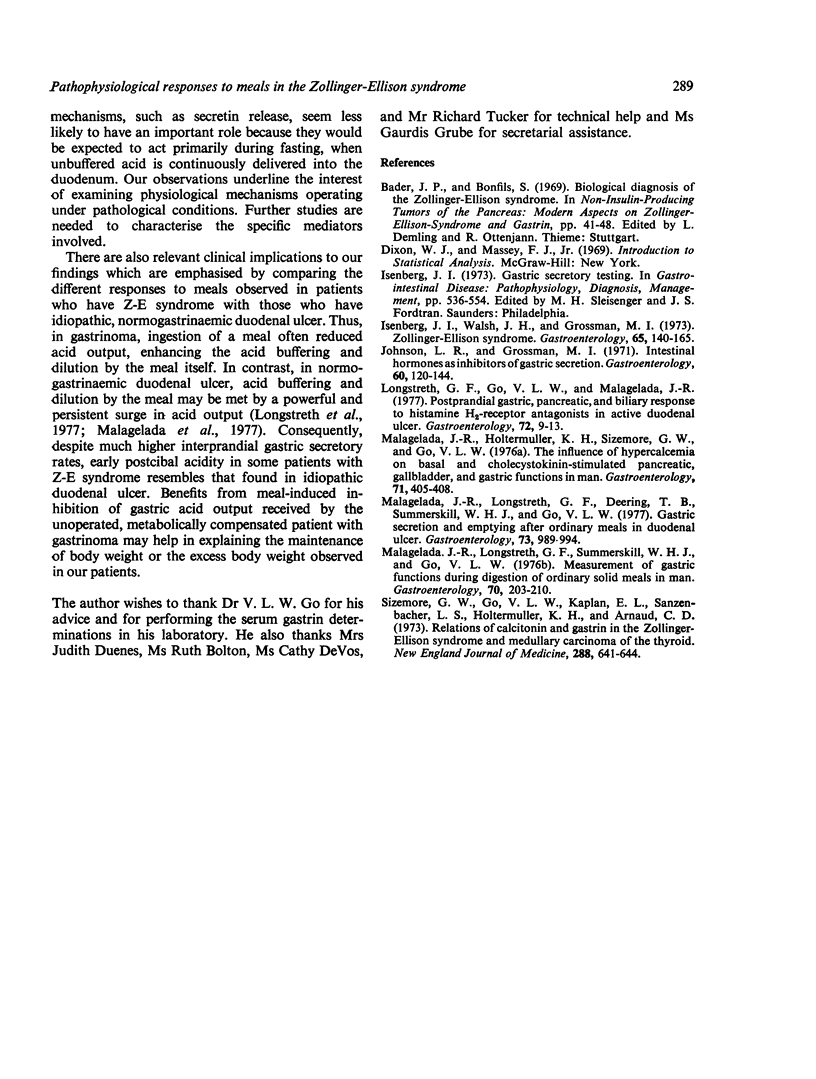
Selected References
These references are in PubMed. This may not be the complete list of references from this article.
- Isenberg J. I., Walsh J. H., Grossman M. I. Zollinger-Ellison syndrome. Gastroenterology. 1973 Jul;65(1):140–165. [PubMed] [Google Scholar]
- Johnson L. R., Grossman M. I. Intestinal hormones as inhibitors of gastric secretion. Gastroenterology. 1971 Jan;60(1):120–144. [PubMed] [Google Scholar]
- Longstreth G. F., Go V. L., Malagelada J. R. Postprandial gastric, pancreatic, and biliary response to histamine H2-receptor antagonists active duodenal ulcer. Gastroenterology. 1977 Jan;72(1):9–13. [PubMed] [Google Scholar]
- Malagelada J. R., Holtermuller K. H., Sizemore G. W., Go V. L. The influence of hypercalcemia on basal and cholecystokinin-stimulated pancreatic, gallbladder, and gastric functions in man. Gastroenterology. 1976 Sep;71(3):405–408. [PubMed] [Google Scholar]
- Malagelada J. R., Longstreth G. F., Deering T. B., Summerskill W. H., Go V. L. Gastric secretion and emptying after ordinary meals in duodenal ulcer. Gastroenterology. 1977 Nov;73(5):989–994. [PubMed] [Google Scholar]
- Malagelada J. R., Longstreth G. F., Summerskill W. H., Go V. L. Measurement of gastric functions during digestion of ordinary solid meals in man. Gastroenterology. 1976 Feb;70(2):203–210. [PubMed] [Google Scholar]
- Sizemore G. W., Go V. L., Kaplan E. L., Sanzenbacher L. J., Holtermuller K. H., Arnaud C. D. Relations of calcitonin and gastrin in the Zollinger-Ellison syndrome and medullary carcinoma of the thyroid. N Engl J Med. 1973 Mar 29;288(13):641–644. doi: 10.1056/NEJM197303292881301. [DOI] [PubMed] [Google Scholar]


